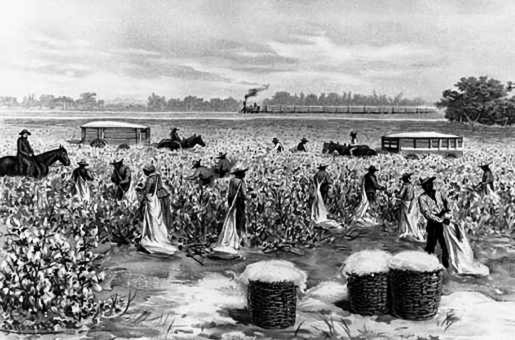 February 26, 2012 ~ April 12, 2011 marked the 150th anniversary of the shelling of Fort Sumter in Charleston Harbor. This launched our Civil War, which would kill more than 600,000 on the two sides. More than half the deaths resulted from disease. The death rate was higher in the Confederate States due to more primitive medical care. The war devastated the economy of the South for decades. Political and emotional wounds from the conflict continue to fester.
February 26, 2012 ~ April 12, 2011 marked the 150th anniversary of the shelling of Fort Sumter in Charleston Harbor. This launched our Civil War, which would kill more than 600,000 on the two sides. More than half the deaths resulted from disease. The death rate was higher in the Confederate States due to more primitive medical care. The war devastated the economy of the South for decades. Political and emotional wounds from the conflict continue to fester.
As this grim anniversary approaches, some commemorations have been launched that portray the Civil War as solely about states’ rights. Last year, secession balls were held in some Southern states to celebrate the splitting of the union. The Civil War was about slavery, the greatest moral blot on our nation’s history.
Tragically, slavery did not end with the Emancipation Proclamation in 1863 nor with the end of the War in 1865. During the period of Reconstruction, when federal law protected the rights of freed slaves, racial violence was constrained. Upon the withdrawal of Federal troops after 1876, however, many white Southerners blamed former slaves for the harsh economic conditions in the region.
From 1877 until well after World War II, Southern states did little to protect blacks from forms of re-enslavement. Full rights for blacks would await passage of the Civil Rights Act of 1964 and the Voting Rights Act of 1965.
Douglas Blackmon, an investigative reporter for the Wall Street Journal, won a 2009 Pulitzer Prize for Slavery By Another Name: the Re-Enslavement of Black Americans From the Civil War to World War II. In a meticulously researched and powerfully presented narrative Blackmon illuminates a history of which most of us are unaware.
In states of the Deep South young black men and women were rounded up for a variety of minor charges gambling, vagrancy, relocating without permission and sentenced to county jails. Sheriffs and other officials then sold or leased the prisoners to white owners of mines, saw-mills, farms and factories. Prisoners were transferred from jails to wretched quarters which were the American equivalent of Nazi concentration camps.
 The inmates worked in dangerous circumstances during the day. Fed meager rations, they were chained in bunk-houses at night. Short sentences would be extended by tacking on days to pay for room and board. Minor infractions led to extended sentences, sometimes for years, if a prisoner could survive horrendous conditions. Beatings, torture, and even execution occurred at the hands of sadistic white guards. Victims had no legal redress. When they died, their bodies were tossed into unmarked graves. They simply disappeared.
The inmates worked in dangerous circumstances during the day. Fed meager rations, they were chained in bunk-houses at night. Short sentences would be extended by tacking on days to pay for room and board. Minor infractions led to extended sentences, sometimes for years, if a prisoner could survive horrendous conditions. Beatings, torture, and even execution occurred at the hands of sadistic white guards. Victims had no legal redress. When they died, their bodies were tossed into unmarked graves. They simply disappeared.
Courts seldom intervened. White juries routinely acquitted mill and mine owners accused of mistreating their forced laborers. In Alabama, where many of the worst atrocities occurred, a U.S. Attorney, Warren Reece, fought to bring abusers to justice in 1903. Politicians toured the state to whip up racial hatred. Witnesses for the prosecution were intimidated into silence. Judges either dismissed cases or handed down trivial sentences, which were often reversed on appeal. Presidents Theodore Roosevelt and his successors did little to end this revised version of slavery.
Forced labor created fortunes for some white business owners in Birmingham, Atlanta and other Southern cities. Cotton plantations flourished and national corporations such as U.S. Steel benefited from cheap, slave labor.
Slowly, pressure from labor unions, exposes in Northern newspapers, and humanitarian organizations brought an end to post-Civil War slavery. Chain gangs and tenant farm systems would continue for decades to exploit descendants of slaves.
This is a heart-breaking but necessary account for all Americans, particularly residents of Southern states to read and to ponder. Author Douglas Blackmon sets a painful history straight.
Written by Clif Cleaveland and published on Times Free Press, April 7, 2011.
~ Addendum ~
Following up on a post from the other day on the failure of the Thirteenth Amendment to ‘abolish’ slavery by including “except as punishment for crime.”
na-tion-al-ize
Function: verb
Inflected Form(s): –ized; -iz·ing
1: to make national
2: to remove from private ownership and place under government control
An investigative reporter for the Wall Street Journal, won a 2009 Pulitzer Prize for his book “Slavery By Another Name”, and in it he describes how normal human behaviors associated minorities were criminalized in order to re-enslave newly freed Black Americans.
Sheriffs and other officials then sold or leased the prisoners to owners of mines, saw-mills, farms, and factories.
 FAIR USE NOTICE: This site contains copyrighted material the use of which has not always been specifically authorized by the copyright owner. We are making such material available in our efforts to advance understanding of environmental, political, human rights, economic, democracy, scientific, and social justice issues, etc. We believe this constitutes a ‘fair use’ of any such copyrighted material as provided for in section 107 of the US Copyright Law. In accordance with Title 17 U.S.C. Section 107, the material on this site is distributed without profit to those who have expressed a prior interest in receiving the included information for research and educational purposes. For more information go to: http://www.law.cornell.edu/uscode/17/107.shtml
FAIR USE NOTICE: This site contains copyrighted material the use of which has not always been specifically authorized by the copyright owner. We are making such material available in our efforts to advance understanding of environmental, political, human rights, economic, democracy, scientific, and social justice issues, etc. We believe this constitutes a ‘fair use’ of any such copyrighted material as provided for in section 107 of the US Copyright Law. In accordance with Title 17 U.S.C. Section 107, the material on this site is distributed without profit to those who have expressed a prior interest in receiving the included information for research and educational purposes. For more information go to: http://www.law.cornell.edu/uscode/17/107.shtml
